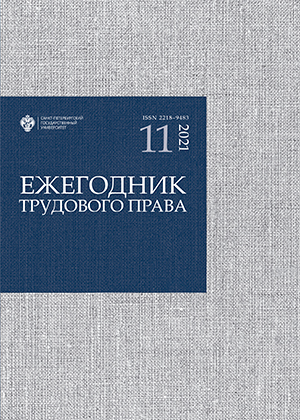The legal essence of the national qualifications system
Abstract
The national qualifications system and its components such as professional standards, levels and independent assessment of qualifications are going through a period of formation and centralized legal consolidation in Russia. Attempts are being made to determine the relationship of new categories with the traditional concepts of labor law: an employment contract, wages, labor rationing, vocational education. International experience of using such systems proves that there is a direct link between the level of education and employment, wages and social stability. At the same time, there is a serious need to establish uniform requirements for the qualifications of employees throughout the country and their harmonization at the interstate level. The success of the implementation of the newly formed elements of labor relations depends on the active position of representatives of trade unions and employers under the direct control and funding of the state. At the same time, the most adequate method of legal regulation of the phenomena under consideration could be an instrumental, innovative approach, which makes it possible to transfer existing international standards to the development of national legal mechanisms and adequate legal means of their practical implementation. However, the first, largely experienced parties of lawmaking in the studied area contain contradictions in definitions and content of new concepts that create problems associated with their reasonable application. For example, the revision of the requirements for the qualifications of an employee based on professional standards, as evidenced by judicial practice, leads to unjustified transfers and dismissals, a significant intensification of labor, the introduction of unjustified work and rest regimes, and a decrease in wages. At the same time, there is no formal definition of the national qualifications system in the current regulatory framework. An integral concept of its improvement has not yet been developed. There are no in-depth studies of the legal nature of this system and legal categories, both included in it and interacting with it. After analyzing the international and Russian legal acts of the subject under study, as well as the practice of their application, the authors offer solutions to these problems.
Keywords:
qualifications, independent assessment of qualifications, professional standard, national qualifications system, labor relations
Downloads
References
References
Downloads
Published
How to Cite
Issue
Section
License
Articles of "Russian Journal of Labour & Law" are open access distributed under the terms of the License Agreement with Saint Petersburg State University, which permits to the authors unrestricted distribution and self-archiving free of charge.




